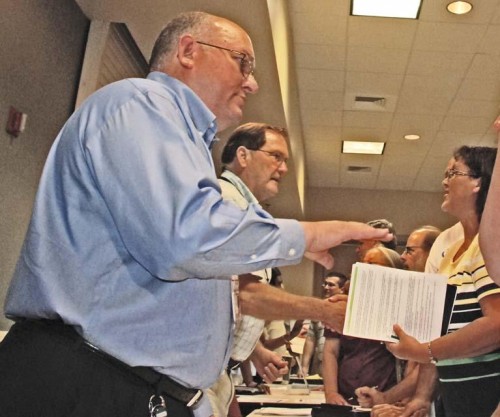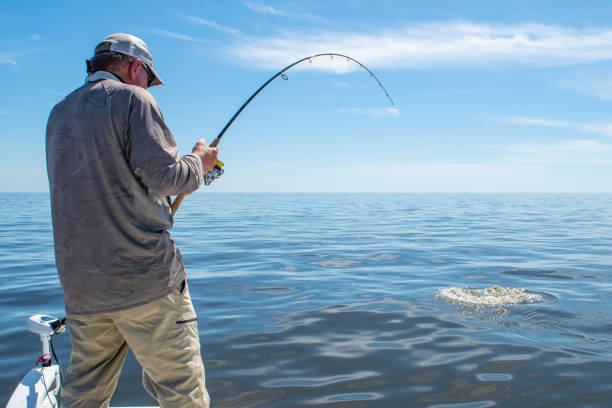Tuesday, June 15
June 15, 2010Thursday, June 17
June 17, 2010Just as the oil spill disaster in the Gulf closes in on its 60th day, many south Louisiana residents and workers still have yet to reach a satisfactory conclusion regarding loss of income and safety measures for clean-up, and they want answers.
The steady hum of concerned voices radiated through the Houma-Terrebonne Civic Center Friday evening as residents gathered to meet with representatives from the U.S. Coast Guard, BP and Wildlife Response Services – wondering what they plan to do next.
“This is really an opportunity to educate you on what we’re doing, and we hope that this exchange will be much more productive than the exchanges we’ve had in the past,” said Capt. Roger LaFerriere of the U.S. Coast Guard.
LaFerriere also stressed that he hasn’t overlooked the needs of the people whose lives have been significantly disrupted by the spill.
“This is absolutely about your way of life, it’s not just about the fight for the oil, it’s about fighting for your way of life, and I make that point every day when I talk to my people,” he said.
Among the people fighting for their way of life were Jerry Duplantis, 69, and Tony Billiot, 73, both from Dulac, who have well over a century of combined fishing experience behind them, and are eager to get back to work.
“We haven’t been doing anything but sitting at home, and I’d like to get the opportunity to go to work,” Duplantis said, who is reaching the end of his compensation check from BP.
“The opening and closing of the season is the biggest thing,” said Eno Domingue, 47, a shrimp and crab fisherman. “Not knowing when and where, and what’s open and what isn’t open, that’s been the hardest part.”
Dominique said he’s lost approximately $25,000 since the opening of the season, and came to the meeting to look for work opportunities.
Other residents, like Houma resident David Griffin, came out to give BP ideas on how to clean up the oil.
“Since the oil spill began, I came up with something to pick up oil in the shallow water because they do not have skimmers that can pick up oil in a small period of time,” he said.
Griffin even brought photos of his skimmer to hand out to BP representatives.
“It’s our responsibility and accountability to make things right, and we are all working very hard to so with the help of Capt. LaFerriere,” said Hugh Depland, a BP spokesman who also attended the meeting.
Some residents, however, disagree.
“I’m waiting for the answers for our guys,” said Kimberly Chauvin.
Chauvin, dock owner and operator of Mariah Jade Shrimp Company, has been fed up with the less-than-adequate safety equipment BP has supplied for her fishermen, who have been falling ill as a result of working in the oil.
“I have had enough, I’ve been waiting for a month and we need respirators, and to no avail have we gotten anything,” she said. “Our guys are getting sick and they are pretending like they’re not getting sick.”
Chauvin added that the fishermen don’t have much of an option when it comes to work, because they are unable to cover all their expenses with the compensation check from BP.
“They are working and risking their health, so the least they could do is to make sure that our men our covered and safe, and they’re not doing that,” she said.
BP representatives at the Friday meeting told Chauvin they would set up a meeting with her to go over these safety issues. That meeting date has yet to be determined, but Chauvin has been in close contact with the Coast Guard in an effort to get safety requirements met in a timely manner.
Manuel Merios (left), of Danos & Curole Marine Contractors talks to potential oil spill workers at the Houma-Terrebonne Civic Center Friday about training and work contract opportunities across the region. * Photo by JENNA FARMER










